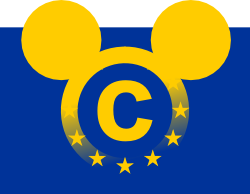Paris, Jan 26th – The European Parliament’s committee for legal affairs (JURI) voted the Medina report on Copyright last week. This report goes against its initial objective of responding to the Green Paper on Copyright in the Knowledge Econnomy. This Green Paper implicitly acknowledged the failure of the 2001 copyright directive. It asked open questions on how to cope with it, suggesting various possible measures in the direction of reaffirming user rights. The Medina report only contains ridiculous repressive measures dictated by the entertainment industries, and goes as far as denying the Commission’s ongoing studies. Among its recommendations are “graduated response”, content filtering, Internet service providers liability, denial of copyright exception, etc. It will be up to the Members of European Parliament (MEPs) to protect their electors by strongly rejecting this report.

(CC)BySa La Quadrature du Net
The report1on the harmonization of certain aspects of copyright and related rights in the information society from Spanish socialist MEP, Manuel MEDINA ORTEGA (helped by Janelly FOURTOU and Jacques TOUBON), voted in JURI committee on Jan 20th, is the most extreme and ridiculous text about copyright seen in a long time from the European Parliament (EP). It will soon be proposed to vote in plenary for a resolution of the EP2that is a legally non-binding text, expressing the political opinion of the EP.
The initial objective was to react to the lessons that the European Commission draws in its Green Paper on 7 years of application of the copyright in the information society directive. As it did at several instances in the past, the committee took a narrowly dogmatic view. It ignored the evidence of harmful effects of the previous approaches, even when such evidence was presented in the independent study commissioned by the European Commission.
“The Medina report is ridiculous and full of repressive measures. It is in total contradiction with what MEPs voted twice against ‘graduated response’ and with the realities of Internet. It only favours entertainment industries and doesn’t contain anything for culture, the artists, or their public.” explains Jérémie Zimmermann, co-founder of La Quadrature.
The recommendations of the JURI committee, made without reference to any study, consultation, or sounds analysis, anticipate the result of works led by the Commission3“Copyright in the knowledge economy”: http://ec.europa.eu/internal_market/copyright/copyright-infso/copyright-infso_en.htm and “Creative Content Online” initiative: http://ec.europa.eu/avpolicy/other_actions/content_online/index_en.htm. They look like the complete wish list of the entertainment industry against Internet and its users:
- graduated response: The report recommends “three strikes” schemes against unauthorised file sharing for all Europe, including cooperation with ISP based on denunciations by the entertainment industries (points 31, 37)
- Internet content filtering: The recommendations ask for the deployment of technologies for filtering content “for identification and recognition, […] with a view to distinguishing more easily between legal and pirated products” that totally contradicts the very nature of Internet. (point 35)
- Internet access providers liability: the report “Invites reflection on the responsibility of internet access providers in the fight against piracy;” including the objective of making service providers liable for content published by their users. (points 32, 36, 37)
- Denial of copyright exceptions: its conclusions on copyright exceptions are anticipating the result of the public consultation launched by the European Commission on “Copyright in the knowledge economy” by stating that any reform of the 2001 copyright Directive is undesirable, that the existing regime for copyright exceptions is undesirable, and that there is no need for new exceptions. This archaic position undermines creativity, interoperability, and innovation. (points 3, 20, 23, 25)
La Quadrature invites EU citizens to ask their MEPs to strongly reject the Medina report in plenary. A wiki-based tool, Political Memory is available to help contacting MEPs and keeping track of their votes on these crucial issues.
“MEPs must stand against JURI’s position and reject this report. A few months away from the elections, voters will watch carefully if MEPs represent their interest or the interests of decaying industries waging war on their clients.” Zimmermann concludes.
References

